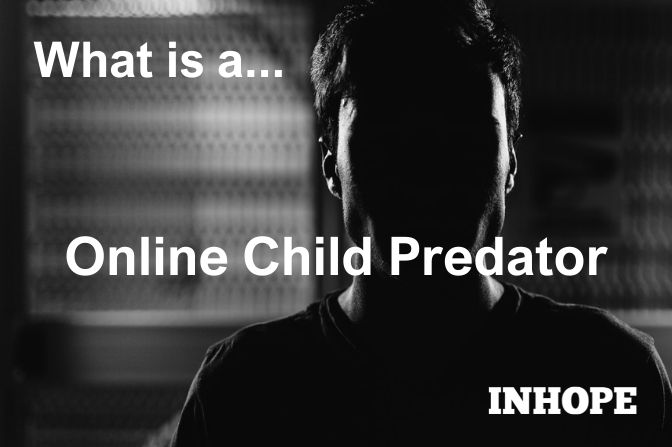Article
Educational Articles
What is a online child predator?
An online child predator is someone that seeks contact with children and adolescents on the internet for abusive and exploitative purposes that are typically sexual. They use the internet as a method to facilitate contact with children to potentially harm them online or offline.
Common crimes committed by online child predators can range from grooming, engaging in sexually explicit communication, sextortion, meeting for sex, and involvement in collecting, distributing, and producing child sexual abuse material (CSAM).
Where do offenders operate?
Online child predators target their victims using a multitude of resources or applications which may include forums, social media, chat rooms, instant messaging, and other internet-based platforms that have a younger user base. On many online platforms, they can engage with victims anonymously, try to befriend them, conceal their identity, or pretend to be someone they are not to decrease their chance of detection.
Grooming the victim
For child predators, once they can initiate contact and gain access to the child, the grooming process begins. This is defined as the actions deliberately undertaken with the aim of befriending and establishing an emotional connection with a child, to lower the child's inhibitions in preparation to abuse the child online or offline.
Ways to protect yourself whilst being online
It is important to recognise the signs of child predatory behaviour that an offender is exhibiting to prevent abuse from happening. Some of these incidents may be obvious but sharing something simple and straightforward like personal information, even with an anonymous friend on a platform, can put your child at risk also in the context of potential child sexual abuse.
-
Did you know that personal identifiers are also potential hazards when it comes to putting yourself or your child at risk? This can include one’s home address or phone number.
-
Is your child aware that child predators can intentionally misrepresent their age? Keeping this a secret may facilitate the process of targeting the child and continuing contact.
-
Since child predators prefer to conceal their identity and online activity from public eyes, they may insist on taking the conversation to a private platform like phone, email, or private chat room.
-
Make sure to refuse any offers of money or gifts because this is a common tactic used by predators to build trust or to use as a form of bribery.
-
Child predators are becoming more advanced and sophisticated with their use of technology and use this as a method to find new ways to target children. Do not share or make your pin location public. Child predators can also harness location-based technology to track and target children. Some of these devices like phones, laptops, and tablets that a child may carry are equipped with GPS technology and widely available free apps capable of revealing very personal data. Parents and caretakers best bet is to disable location sharing.
-
Turn down any request to meet offline and in person to avoid being the victim of a crime. Your safest bet is to block and report the predator’s account.

Photo by INHOPE
If you'd like to learn more about topics like this, then
click here to sign up for INHOPE Insights and Events.